PAST RESEARCH PROJECTS: 2022-2024
For other past projects from previous years, visit our Hawaiʻi Sea Grant Research story map
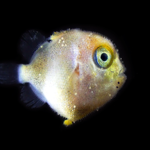
Resolving the diet of marine fish larvae to increase aquaculture opportunities
PI: Brian Bowen
Most marine fish in the aquarium trade are taken from the wild, harming reefs and depleting wild fish stocks. This study uses DNA to resolve what popular marine fish larvae eat, to improve the chances of successfully raising these fish in captivity, creating a new dimension for the aquaculture industry.
Most marine fish in the aquarium trade are taken from the wild, harming reefs and depleting wild fish stocks. This study uses DNA to resolve what popular marine fish larvae eat, to improve the chances of successfully raising these fish in captivity, creating a new dimension for the aquaculture industry.
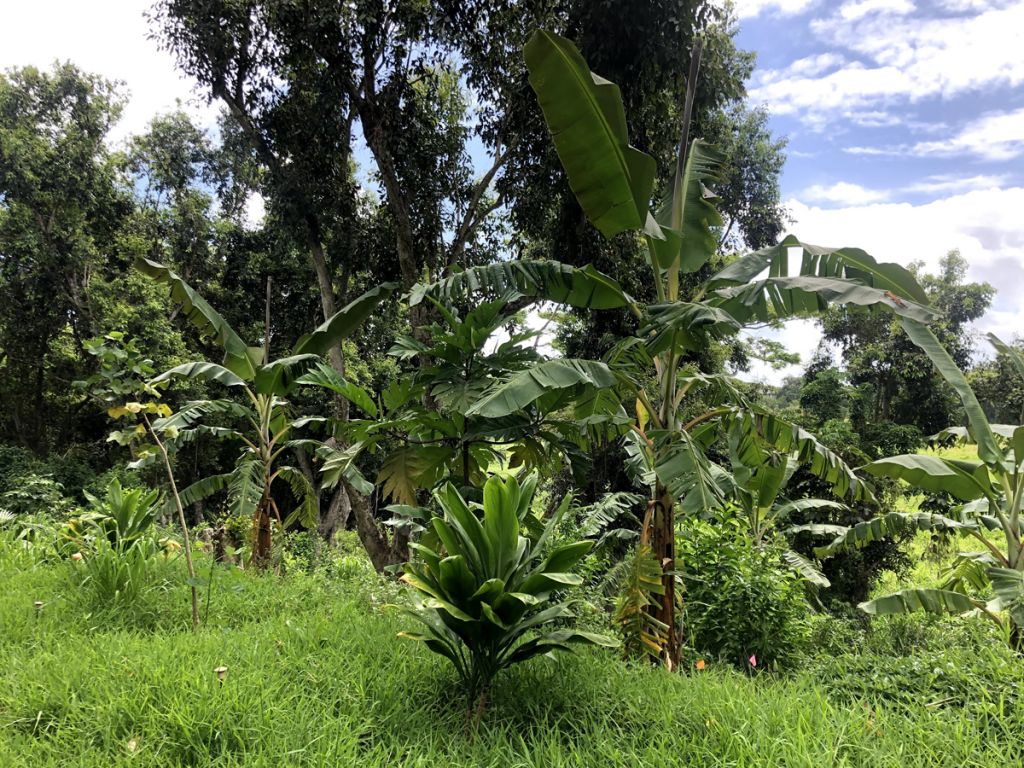
Enhancing social-ecological resilience and ecosystem services through restoration of coastal agroforestry systems
PI: Leah Bremer
Agroforestry systems were abundant in historical Hawaiʻi, and there is great interest in their restoration today. This project aims to understand better the potential for community-based agroforestry and co-develop a knowledge exchange to help Hawaiian practitioners across the islands respond and adapt to impacts of climate change.
Agroforestry systems were abundant in historical Hawaiʻi, and there is great interest in their restoration today. This project aims to understand better the potential for community-based agroforestry and co-develop a knowledge exchange to help Hawaiian practitioners across the islands respond and adapt to impacts of climate change.
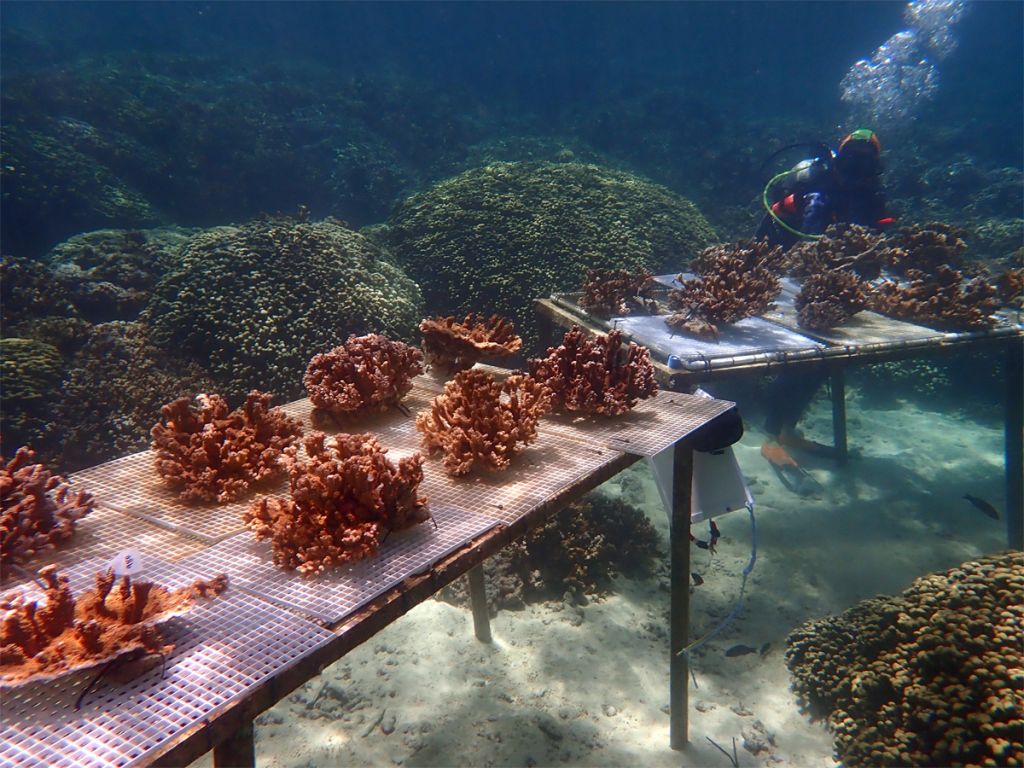
Next generation husbandry for resilient coral reef restoration in Hawaiʻi
PI: Crawford Drury
Coral reefs are important ecosystems that support marine diversity, but they are threatened by increasing marine temperatures, among other stressors. This work aims to evaluate coral sexual reproduction, and co-cultured rearing of larvae with urchins, as viable conservation tools for improving out-planting reef survivorship.
Coral reefs are important ecosystems that support marine diversity, but they are threatened by increasing marine temperatures, among other stressors. This work aims to evaluate coral sexual reproduction, and co-cultured rearing of larvae with urchins, as viable conservation tools for improving out-planting reef survivorship.

Economic impacts of severe weather events
PI: Peter Fuleky
Climate change is increasing the frequency and intensity of extreme weather, including storms and flooding events, which have crucial environmental, social, and economic implications. This project will explore the multifaceted effects of large rain and wind events on Hawaiʻi at the state, county, and neighborhood scales using existing datasets and models.
Climate change is increasing the frequency and intensity of extreme weather, including storms and flooding events, which have crucial environmental, social, and economic implications. This project will explore the multifaceted effects of large rain and wind events on Hawaiʻi at the state, county, and neighborhood scales using existing datasets and models.

Research and education to support development of open-water restorative and production aquaculture in Hilo Bay
PI: Maria Haws
The Hilo Bay Research and Training Farm, a mariculture partnership based at the University of Hawaiʻi at Hilo, works to develop shellfish farming with a host of community organizations. This research focuses on testing the feasibility of using bivalves and native limu to improve water quality, mitigate ocean acidification impacts, and encourage local economic development.
The Hilo Bay Research and Training Farm, a mariculture partnership based at the University of Hawaiʻi at Hilo, works to develop shellfish farming with a host of community organizations. This research focuses on testing the feasibility of using bivalves and native limu to improve water quality, mitigate ocean acidification impacts, and encourage local economic development.
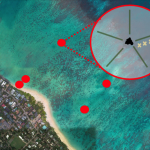
Working towards sustainability of Hawaiʻi’s nearshore fisheries through characterizing and modeling fisheries regulation effects
PI: Elizabeth Madin
Nearshore fisheries provide important services for coastal communities, but globally, many have collapsed, pointing to the urgency of determining the health of current fisheries and best management practices. This study will determine whether grazing halos around coral reefs may provide a window into ecosystem health and thus guidance on the effectiveness of applied management strategies.
Nearshore fisheries provide important services for coastal communities, but globally, many have collapsed, pointing to the urgency of determining the health of current fisheries and best management practices. This study will determine whether grazing halos around coral reefs may provide a window into ecosystem health and thus guidance on the effectiveness of applied management strategies.
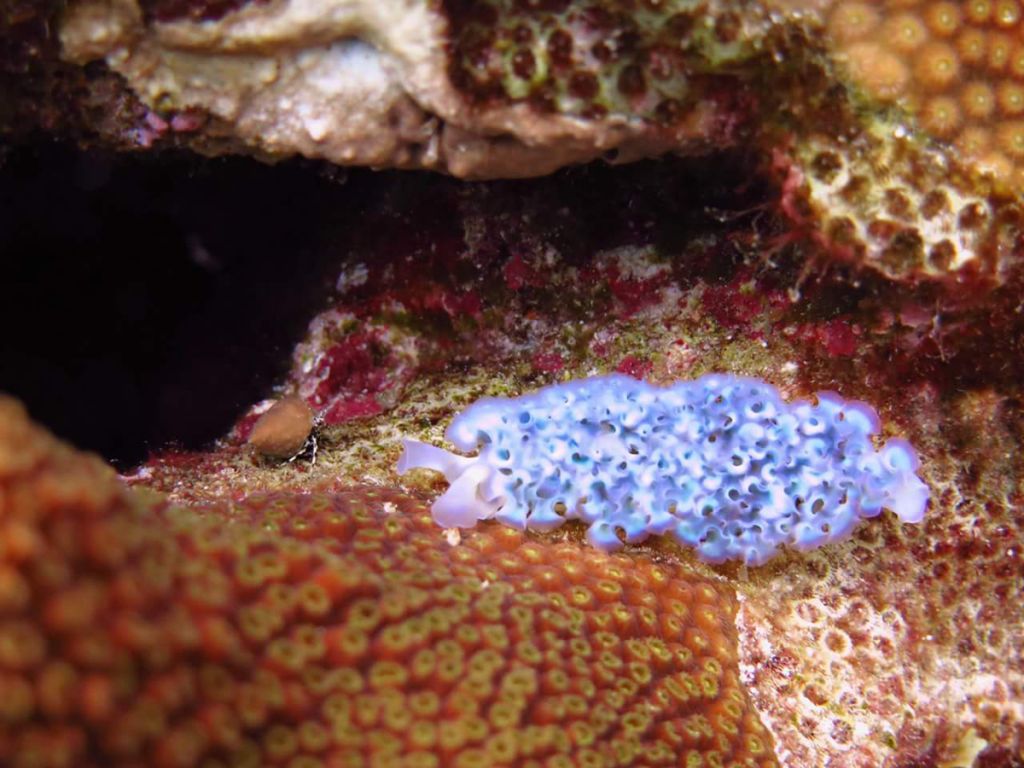
Environmental DNA: Ground-truthing a new tool for coral reef monitoring
PI: Peter Marko
With climate change increasingly altering coral reef ecosystems, there is a need to develop new approaches for monitoring reefs more quickly and frequently. The analysis of environmental DNA has the potential to revolutionize this kind of biological monitoring, increasing the breadth of species surveyed, including those often hidden from sight.
With climate change increasingly altering coral reef ecosystems, there is a need to develop new approaches for monitoring reefs more quickly and frequently. The analysis of environmental DNA has the potential to revolutionize this kind of biological monitoring, increasing the breadth of species surveyed, including those often hidden from sight.

Exploring nutrient utilization in native Hawaiian seaweeds for parallel aquaculture development across restoration and sustainability applications
PI: Craig Nelson
Aquaculture efforts to raise edible native limu require reliable and sustainable nutrient sources that have no negative impacts on their microbiota. This project seeks to advance limu production in Hawaiʻi by evaluating the potential of nutrient-rich groundwater and fish-aquaculture effluent as new nutrient sources for limu aquaculture.
Aquaculture efforts to raise edible native limu require reliable and sustainable nutrient sources that have no negative impacts on their microbiota. This project seeks to advance limu production in Hawaiʻi by evaluating the potential of nutrient-rich groundwater and fish-aquaculture effluent as new nutrient sources for limu aquaculture.
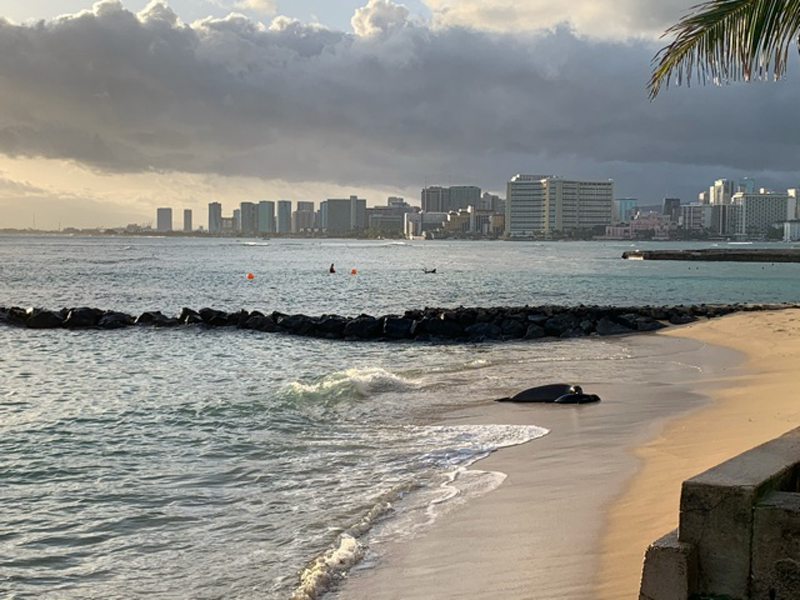
Using natural capital accounting to embed climate impacts into routine decision-making
PI: Kirsten Oleson
Traditional economic indicators underestimate the value of marine ecosystems, despite their societal importance, sometimes leading to resource decision-making that can endanger these sources of prosperity. This research will use a method of treating natural goods and services as assets, natural capital accounting, to evaluate how coastal ecosystems contribute to resilience and the Hawaiian economy.
Traditional economic indicators underestimate the value of marine ecosystems, despite their societal importance, sometimes leading to resource decision-making that can endanger these sources of prosperity. This research will use a method of treating natural goods and services as assets, natural capital accounting, to evaluate how coastal ecosystems contribute to resilience and the Hawaiian economy.
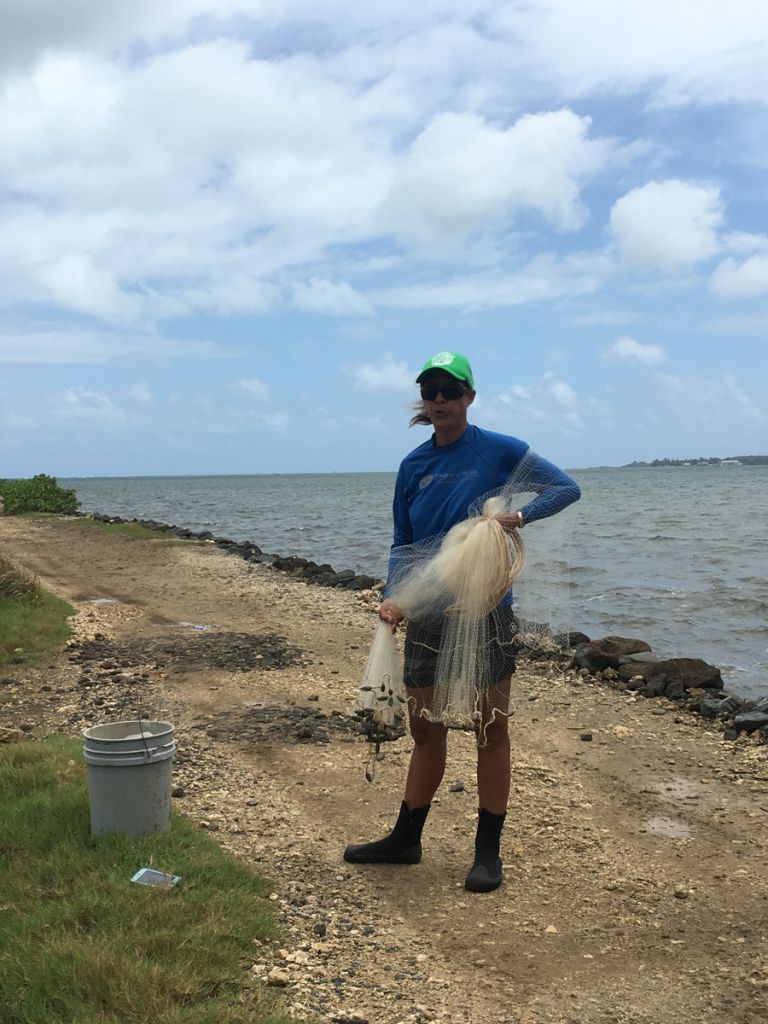
Resource habitat mapping and diet characterization of native and non-native mullet species to inform adaptive management in He‘eia Fishpond
PI: Shimi Rii
Native Hawaiian fishponds are unparalleled examples of effective, resilient, place-based food systems. This collaboratively designed and co-managed project aims to aid restoration and rehabilitation of fishponds by characterizing the diets of native and invasive mullet species using DNA analysis and biomarkers to link the fish with their prey, ideally to increase the capacity for sustainable aquaculture.
Native Hawaiian fishponds are unparalleled examples of effective, resilient, place-based food systems. This collaboratively designed and co-managed project aims to aid restoration and rehabilitation of fishponds by characterizing the diets of native and invasive mullet species using DNA analysis and biomarkers to link the fish with their prey, ideally to increase the capacity for sustainable aquaculture.
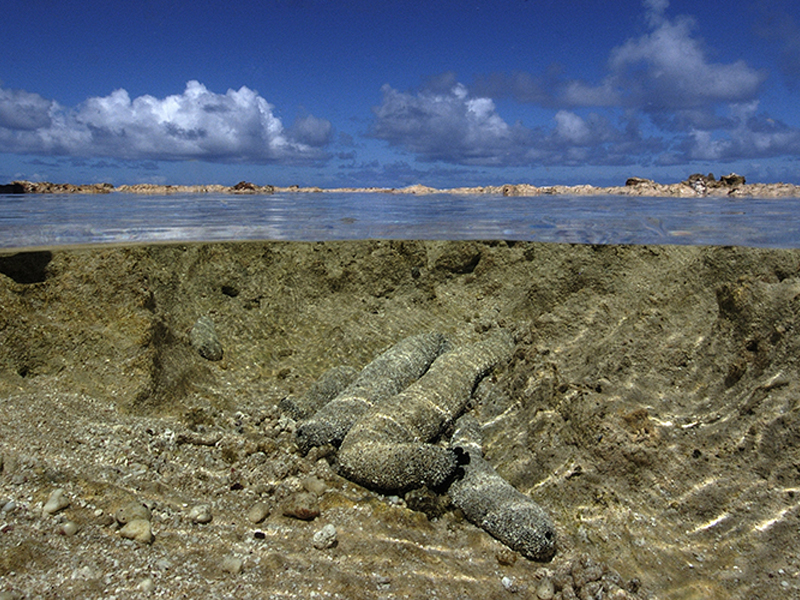
Identifying the physiological responses to extreme environmental changes in native Hawaiian sea cucumbers found in traditional fishponds
PI: Andre Seale
One challenge for successful Hawaiian fishpond restoration is the incomplete understanding of the changes to pond biological resources in response to environmental changes and managed production strategies. This project explores the optimal conditions for raising two native Hawaiian sea cucumbers, unique candidates for improving fishpond ecosystems via enhanced nutrient cycling.
One challenge for successful Hawaiian fishpond restoration is the incomplete understanding of the changes to pond biological resources in response to environmental changes and managed production strategies. This project explores the optimal conditions for raising two native Hawaiian sea cucumbers, unique candidates for improving fishpond ecosystems via enhanced nutrient cycling.
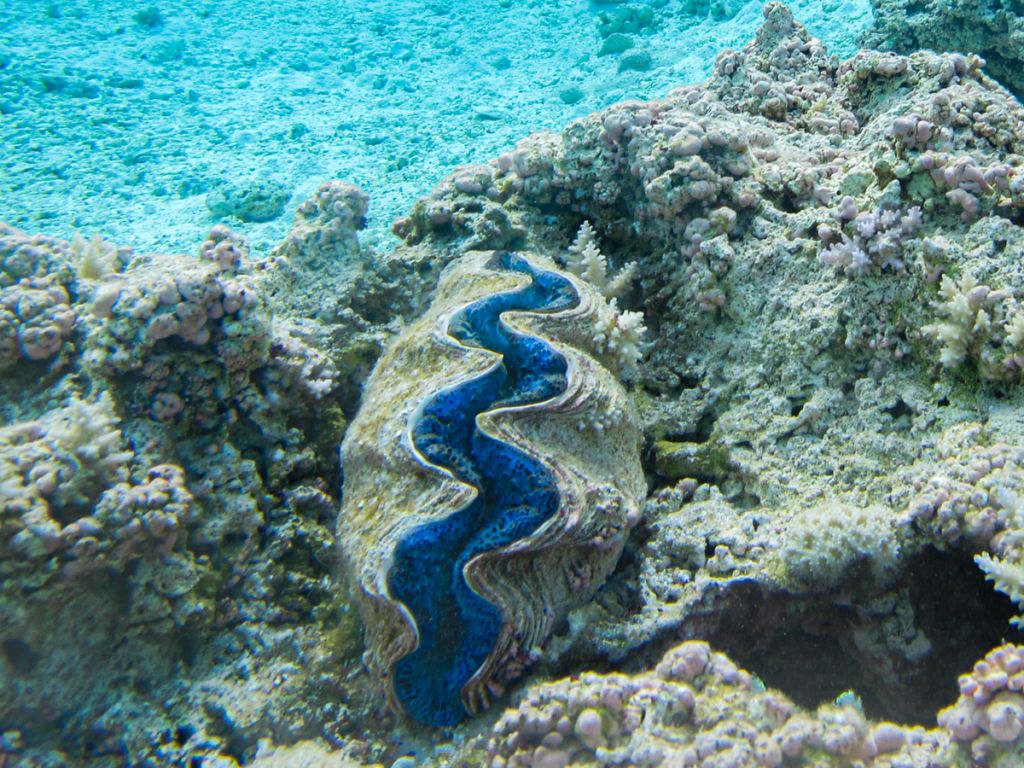
Genetic assessment of giant clam stocks in American Samoa
PI: Robert Toonen
Giant clams are keystone species, but overharvesting has resulted in their being listed as vulnerable to extinction. Population studies of giant clams are out-of-date, so this project will undertake genomic analyses to determine giant clam species abundances across American Samoan waters and the potential of Rose Atoll to act as a breeding refuge for clam larvae.
Giant clams are keystone species, but overharvesting has resulted in their being listed as vulnerable to extinction. Population studies of giant clams are out-of-date, so this project will undertake genomic analyses to determine giant clam species abundances across American Samoan waters and the potential of Rose Atoll to act as a breeding refuge for clam larvae.
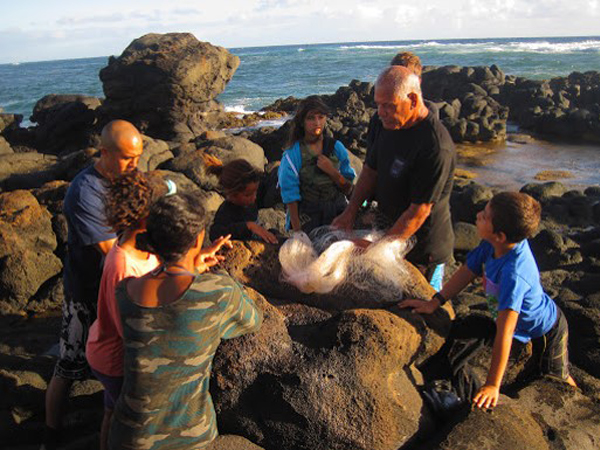
Integrating social and cultural considerations into planning and community-based monitoring to reach marine conservation goals
PI: Mehana Vaughan
Communities and marine ecosystems around the world are facing increasing impacts from climate change, and government agencies working together with local communities is an essential step in adapting to those impacts. This project aims to increase community engagement with the Hawaiʻi Division of Aquatic Resources to enhance marine monitoring and conservation efforts.
Communities and marine ecosystems around the world are facing increasing impacts from climate change, and government agencies working together with local communities is an essential step in adapting to those impacts. This project aims to increase community engagement with the Hawaiʻi Division of Aquatic Resources to enhance marine monitoring and conservation efforts.
IN THIS SECTION
Learn more about Hawaiʻi Sea Grant Research.

